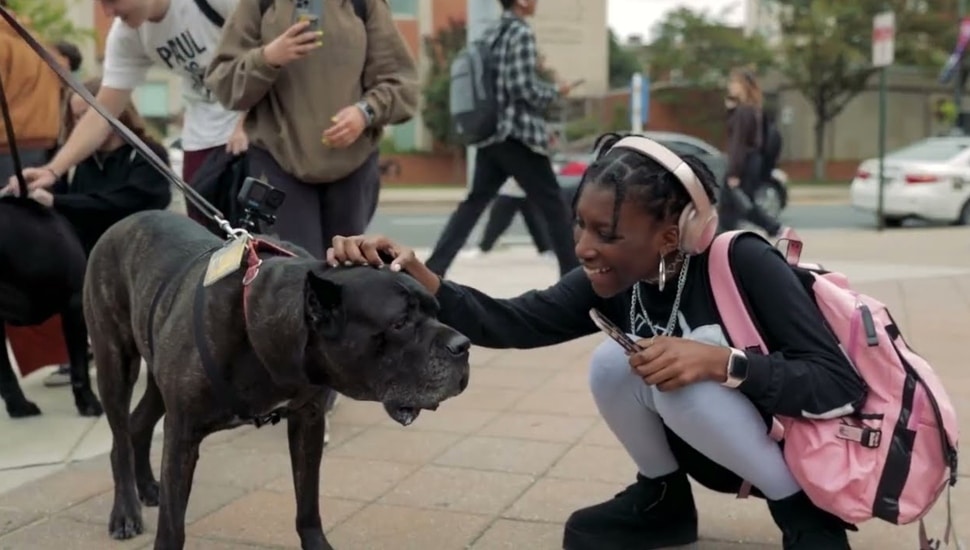The Mental Health Benefits of Pets

While there’s always a risk of scratched furniture or accidents on the carpet, the benefits of pet ownership on people’s mental health seem to outweigh the stresses. In a poll conducted by the American Psychiatric Association, 86 percent of pet owners said their pets had a positive impact on their mental health, and two-thirds said that pets help relieve stress and anxiety, offer companionship, and provide unconditional love.
Pets can improve mental health in many ways. Caring for a living creature, maintaining a regular schedule, and spending time playing with a pet can improve well-being. Pets can reduce the effects of depression, anxiety, loneliness, and post-traumatic stress disorder (PTSD). When you’re stressed out, hugging an animal can provide calming support. Petting and playing with animals releases feel-good hormones like dopamine and serotonin.
Animals can have such a positive impact on people that many hospitals and rehabilitation centers incorporate specially trained animals, such as therapy dogs, into patient care plans. At Jefferson Moss-Magee Rehabilitation in Philadelphia, patients recovering from traumatic injuries or illness can work with Nigel, a 6-year-old trained Labrador/Golden Retriever mix, as part of their intensive inpatient rehabilitation.
An Encouraging Presence
“Nigel is there to help with patients’ therapy, but his presence does so much more,” said Peter DeLong, an occupational therapist at Jefferson Moss-Magee Rehabilitation and Nigel’s working partner. “I have seen patients push themselves beyond what they would do with a therapist alone, simply because they are enjoying the interaction with Nigel. That energy turns into confidence and satisfaction, and I know our patients leave those sessions feeling better about themselves.”
On Drexel University’s campus, students adjusting to being away from home or trying to learn how to balance school, work, and other responsibilities can hug a 100-pound, four-legged friend every day of the week. Drexel Pet Therapy Program Coordinator Janine Erato owns, trains, and handles a family of three Cane Corso dogs: Espresso, Java, and Mocha Latte, all of whom are happy to provide friendship and support to students and faculty.
“It is heartwarming to see how our dogs can change students’ lives,” Erato said. “When students are having a bad day and see one of our dogs on campus, I see their faces light up, their shoulders relax, and watch them actively decompress with just a few minutes of pets and cuddles. You never know the kind of day someone is having, but I know the dogs help.”
Snuggles for Everyone
For those who can’t keep a pet but want to experience the mental health benefits of interacting with them, consider the following options:
- Offer to help at an animal shelter
- Foster an animal for short periods of time
- Pet-sit for a friend, family member, or through a pet-sitting service
- Volunteer with organizations or care facilities that have pet therapy programs
“Animals are incredible beings that have a strong sense of empathy and connection,” DeLong said. “They engage purely through love and support and just want to be around people. I recommend working with one whenever possible.”
For information on fostering an animal or volunteering with a shelter, contact the Philadelphia Animal Welfare Society (PAWS), ACCT Philly, or the Pennsylvania Society for the Prevention of Cruelty to Animals (PSPCA).
Learn more about mental health, self-care strategies, and where to find help at Independence Blue Cross.
Join Our Community
Never miss a Delaware County story!
"*" indicates required fields

























![95000-1023_ACJ_BannerAd[1]](https://delco.today/wp-content/uploads/sites/3/2023/03/95000-1023_ACJ_BannerAd1.jpg)





